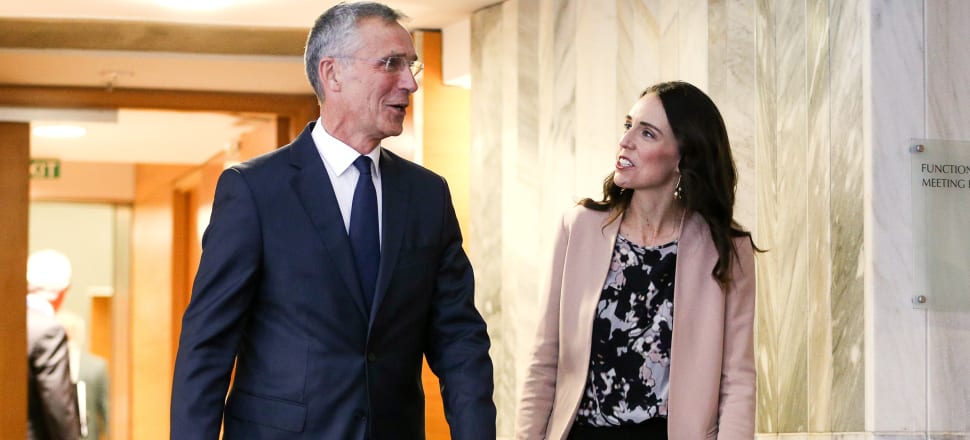
Keith Locke explains why the Prime Minister’s decision to attend the Nato Leaders meeting might make David Lange turn in his grave
The invitation for Prime Minister Ardern to attend the Nato Leaders Summit might seem to be an honour and an opportunity, but it has big downsides. Getting too tied up with Nato compromises our non-nuclear status and our independent foreign policy, which has been focused on peacemaking more than warmaking.
Nato is a nuclear weapons-based alliance, with three of its members, Britain, France and the United States, possessing such weapons. The alliance has aggressively campaigned against any moves by the international community to find a path to complete nuclear disarmament.
Take for example Nato’s hostile stance to the Treaty on the Prohibition of Nuclear Weapons, adopted on July 7, 2017 at a UN-sponsored conference by 122 countries, which has come into force now that 62 state parties have gone through their formal ratification processes.
New Zealand spent years campaigning for the Treaty in the face of opposition from every Nato country and the three other non-member countries invited to the Nato Leaders meeting, namely Australia, Japan and South Korea.
A Nato communique, dated June 14, 2021, reiterated its opposition to the Treaty as “inconsistent with the alliance’s nuclear deterrence policy” and because it “does not take into account the current security environment”. Despite widespread international support for the Treaty, Nato wouldn’t accept it added any legal obligations on the nuclear-armed states. Meanwhile Nato allies Britain, France and America continue to spend billions of dollars modernising their nuclear armories.
Support for the nuclear ban treaty has been particularly strong in countries in the global south, and among some neutral countries in Western Europe, like Ireland and Austria. We should continue to work with all these nations on nuclear disarmament issues, which are as pertinent as ever. Conventional wars, like in the Ukraine, can become nuclear if one of the nuclear-armed parties miscalculates. President Vladimir Putin has hinted at the possibility that Russia’s nuclear weapons could be deployed if the current conflict escalates.
This nuclear danger is one reason for New Zealand to join those countries, again mainly in the global south, who are pushing for an early ceasefire and peace negotiations to end the war.
This won’t be easy. On one side are the Ukrainians who have heroically resisted the Russian invasion, at a terrible cost in lives lost and property destroyed. They don’t wish for anything less than a full Russian withdrawal and think they can win if they get enough modern arms from the Nato states. On the other side are the Russians, who believe their military machine is powerful enough to capture and hold on to all of the Donbas, and also keep Crimea.
Maybe there are ways nations in the global south can help to break this deadlock, working both inside and outside the UN. A New Zealand too closely tied to Nato is limited in what it can do to help such a peace process.
Ending the war in Ukraine is an urgent matter for all countries. We are all experiencing as a consequence big increases in the cost of food and energy, and higher rates of inflation.
It is disturbing that 35 years after New Zealand became nuclear-free and ended its involvement in the Anzus treaty, we have gradually been creeping back under the American defence umbrella. The recent Biden/Ardern communique was largely an American construct praising both the Aukus (Australia, Britain, United States) defence arrangement and the Quad meetings between India, Australia, Japan, and the United States, as well as strongly criticising China.
Our Prime Minister’s latest decision to attend the Nato Leaders meeting, and miss the Commonwealth Heads of Government meeting in Rwanda shows where her priorities lie. Former Prime Minister David Lange, a champion of the Commonwealth and our nuclear-free policy, might be turning in his grave.







